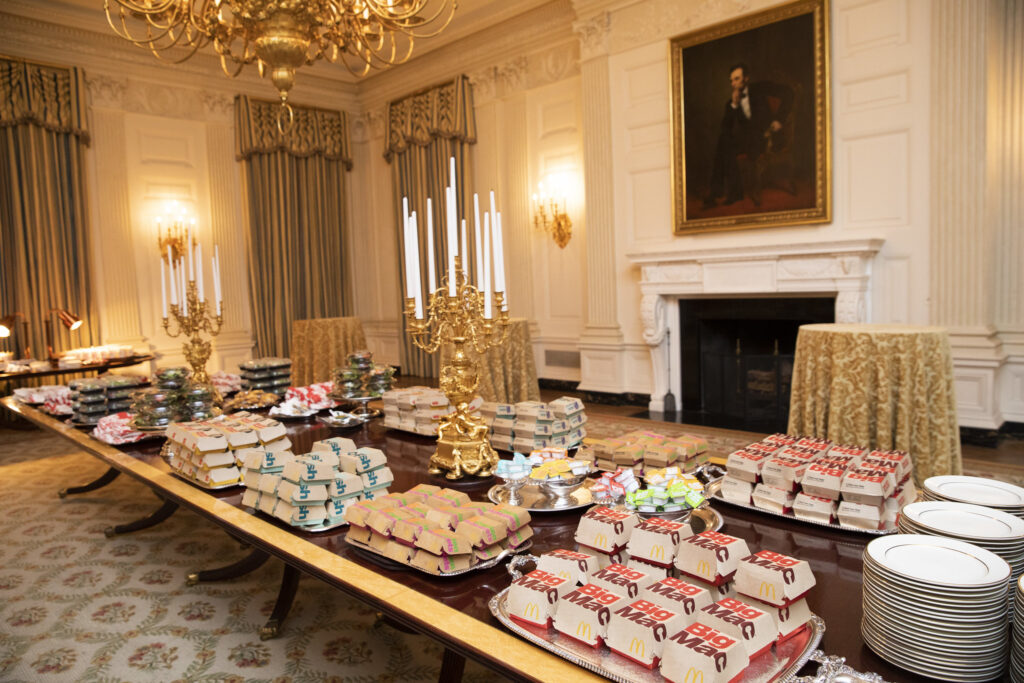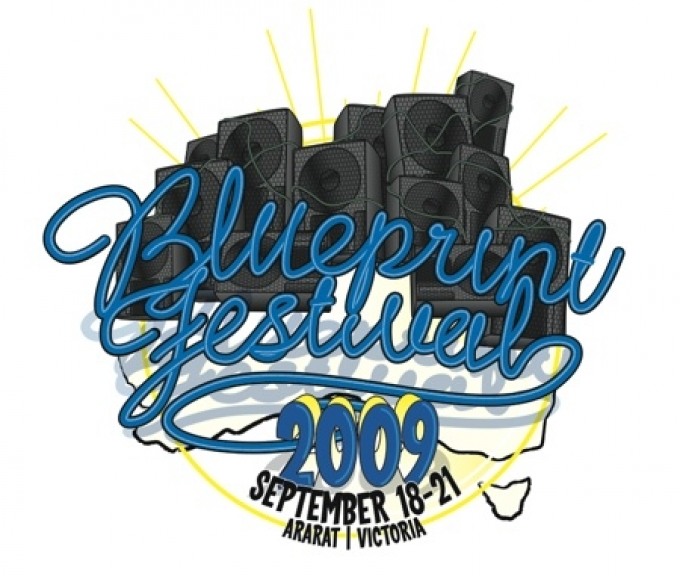
Fighting Fyre: Epic Event Fails and How to Avoid Them
Event fails come in all shapes and sizes, from minor mishaps to epic messes. When high profile events go wrong, they make the news and we all get to learn from them.
Below, we showcase five examples of epic event failures and lessons learned, from serving fast food at a national championship dinner to leaving high-paying festival attendees stranded on a remote beach. Though these mistakes may seem obvious, they happen when proper planning and risk assessments are not at the forefront of the event organizing process.
Better to learn from the mistakes of others, than make them ourselves. Read more below about how to prepare for and avoid common event failures, including how Ticketbud can assist in your event success.
FAIL 1 – Not Living Up to the Brand
In January 2019, the Clemson University football team was scheduled to be honored with dinner at the White House after their National Championship win against The University of Alabama. But instead of a 5-star, multi-course meal plated and served, the champs were met with a buffet of “everyone’s favorite fast foods.”

The assumption was presumably that college-aged men would like popular fast foods, or more likely there was a catering fail that led to a last-minute fix. Regardless, the honorary meal was subject to criticism from a national audience, many of whom believed the winners deserved better. What was delivered did not meet the expectations for what the White House brand represents, and the brand took a PR hit because of this.
How to avoid this epic fail:
When planning your event, it’s important to be clear about your brand positioning, who you’re planning the event for and why. Whether you promote yourself as a luxury brand or a family-friendly brand, your event needs to reflect that. Revisit these ideas throughout your planning process to ensure each decision aligns with your brand, event goals and audience.
Ask yourself: What is the purpose of the event? What are we hoping to achieve? How does our brand align with that?
If you choose to use Ticketbud as your ticketing or registration provider, you can create a custom webpage from an easy to use template. Add all your event details, graphics (artwork, photos, videos and maps), ticketing information and clear terms and conditions to ensure attendees get a clear picture of the event experience.
FAIL 2 – Busting the Budget
Financial shortfalls are sure to cause event failures, which is why defining a clear budget should be one of the first steps in your event planning process. Not every event needs to offer a swanky, over-the-top experience. But if you promote a premium experience, you need to build a budget for it with a firm understanding on how expenses and revenue streams (vendors, tickets and sponsorships) might make or break your bottom line.
Take it from the organizers of DashCon, a convention hosted for Tumblr fans in 2014. Marketing for the event touted celebrity guests, top-level speakers and a highly anticipated ball pit. When the reality of the costs to achieve what was promoted was realized, the organizers did not have the funds to cover what was promised.
The only way organizers avoided canceling the highly-anticipated event was by asking attendees to fork up $17,000 to the hotel venue – by midnight! Somehow, they were able to crowdfund the debt; but then, speakers who were left unpaid began to drop from the conference. Those who stayed and assisted with the unexpected payments were rewarded with raffle tickets for extra time in the ballpit, which turned out to be a half-deflated kiddy pool (and the butt of the biggest meme of the year).
While some found humor in the crisis, most participants got angry. Organizers were forced to refund registrants who paid through PayPal, but those who paid cash were out of luck.
How to avoid this epic fail:
To avoid repeating a massive financial mistake like this, you need to create a comprehensive budget and balance sheet. Know your upfront costs, from the venue to construction, lighting, sound, security and catering, as well as speakers and entertainment. Take into account hidden costs like permits, production costs, extra security and safety requirements.
Review and understand your budget and costs from the beginning, so you are clear about how you will cover expenses and make a profit.
It’s ok to expect to cover some upfront costs with ticket revenue. If you need that early cash flow from ticket sales, you will want a ticketing provider that ensures early payouts, so you’re not scrambling close to billing deadlines.
Ticketbud offers daily, weekly and monthly payouts, so you can access those funds before your event.
FAIL 3 – Overpromising and Under Delivering
We couldn’t talk about the ultimate event failures without mentioning the infamous Fyre Festival, an overhyped, luxury music festival set to take place in the Bahamas in May 2017. With endorsements from the likes of Kylie Jenner and Ja Rule, the festival promised beachfront parties, gourmet food, private jets, and performances from Migas and Blink 182.
This was a classic case of big dreams and no follow through. The organizers were inexperienced with grand ideas but no practical execution plans. Attendees paid between $500 and $1,500 for day tickets, with VIP packages that included flights and accommodation costing around $12k for the once-in-a-lifetime event. In the end, the high price tag got them stranded on an island, fed FEMA sandwiches, and set up in shabby tents. The event was a failure of epic proportions and organizers faced jail time for fraud and $26 million in fines.
Similarly, organizers of the New York City Pizza Festival, also held in 2017, created a recipe for hanger with its promise of “a day-long celebration for the dough, cheese, tasty sauces and delicious toppings.” The event was dubbed the “Fyre Festival of NYC Food Events,” when attendees showed up to a parking lot with mostly empty booths with small samples of cold pizza. This was nowhere near the expected value of the $75 ticket price.

In both cases, trust was shattered between the organizers and their audience, as well as everyone witnessing this unfold in the media. The lawsuits and documentaries that followed not only damaged the reputations of those involved, it also made the general public extra cautious about events that could be a scam.
How to avoid this epic fail:
If you promise something, know exactly how you are going to deliver on that promise. Know how it will be funded and executed. It’s ok to be vague on some elements of your event until you have fine tuned the details, but don’t make promises you can’t keep.
Also, don’t scam people, it’s not nice!
FAIL 4 – Being Reactive Instead of Proactive
No matter how much time and effort you put into planning your event, something is bound to go off-course. However, failing to have any backup plans in place, especially for common issues such as weather, is just setting yourself up for unnecessary stress.
Need convincing? Take TomorrowWorld 2015 for example. It was meant to be the perfect event: a weekend of music set on 8,000-acres of Georgia farmland. But what the organizers didn’t account for was rain, and lots of it.

The rural resort quickly transformed into a vast mud pit. And because organizers closed off transportation access to the festival grounds, attendees were trapped and “left to rot like the walking dead,” as one festival goer put it. Many who set off to find rides outside of the festival grounds were forced to pay high-surging rates for rideshares, while others spent the night on the side of the road.
How to avoid this epic fail:
While being adaptable to the unexpected is a useful skill of event organizers, an even better skill is being able to put contingency plans in place. Avoiding another TomorrowWorld is reason enough for you to complete risk assessments on all aspects of your event beforehand.
When things get out of hand and there is no back-up plan for your back–up plan, you may have to cancel or close your event. If mother nature or something outside your control takes place, it helps if your contingency planning includes coverage for your ticket revenue. Ticketbud has integrated event cancellation protection through Event Protect. So in the instance of a qualifying event cancellation, the organizer can claim ticket revenue back through the coverage, saving funds to help cover sunk expenses.
FAIL 5 – Mispricing Tickets or Registration
In 2009, two young blokes in Australia were sick of high-priced tickets and drinks at events and decided to take matters into their own hands by creating their own music festival. Thus, Blueprint Festival was born, promising the best three days and nights you could get in Victoria without breaking the bank.

Marketing was a huge success, attracting 5,000 attendees looking for fun on a budget. But the 23- and 20-year-old organizers with no event experience ran out of money before paying the performers, vendors and the venue. They claimed they expected to make more money from food and drink sales than they did. But perhaps setting a higher ticket price could have also helped. In the end, the organizers faced bankruptcy and even death threats. And their performers, vendors and venue were left thousands of dollars out of pocket .
How to avoid this epic fail:
We are back to proper budgeting. While it might seem that a low- or no-cost ticket would be popular with attendees and make your event a sell out, it cannot be at the expense of your event partners. Determining the right pricing strategy is critical to an event’s success.
If you have a diverse audience, and want to limit barriers to entry, consider offering multiple ticket options or tiered pricing for your event (think: General Admission, Gold and VIP). Ticketbud makes it easy to create multiple ticket types for your event, or create ticket packages that include drinks, catering and other experiences.
This allows you to offer different pricing levels and experiences to your various audiences. It also gives you opportunities to work with sponsors or partners to design branded, exclusive experiences that can bring in extra cash flow if people are willing to pay.
Additionally, Ticketbud helps you host and schedule ticket promotions or sales, further limiting barriers to entry for those within your customer base that are more price sensitive. The further out from your event you can see revenue the better. Consider hosting an early–bird special with lower ticket prices to get people excited and engaged early-on in your event planning, or schedule a limited-time sale with a holiday to boost interest and sales.
